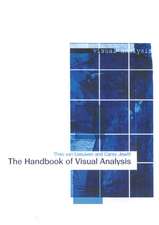Analytical Marxism: Contemporary Social Theory, cartea 1
Autor Thomas F. Mayeren Limba Engleză Paperback – 4 iul 1994
| Toate formatele și edițiile | Preț | Express |
|---|---|---|
| Paperback (1) | 732.35 lei 6-8 săpt. | |
| SAGE Publications – 4 iul 1994 | 732.35 lei 6-8 săpt. | |
| Hardback (1) | 1002.90 lei 6-8 săpt. | |
| SAGE Publications – 3 aug 1994 | 1002.90 lei 6-8 săpt. |
Preț: 732.35 lei
Preț vechi: 893.11 lei
-18% Nou
Puncte Express: 1099
Preț estimativ în valută:
140.15€ • 145.78$ • 115.70£
140.15€ • 145.78$ • 115.70£
Carte tipărită la comandă
Livrare economică 14-28 aprilie
Preluare comenzi: 021 569.72.76
Specificații
ISBN-13: 9780803946811
ISBN-10: 0803946813
Pagini: 384
Dimensiuni: 152 x 229 x 25 mm
Greutate: 0.74 kg
Ediția:1
Editura: SAGE Publications
Colecția Sage Publications, Inc
Seria Contemporary Social Theory
Locul publicării:Thousand Oaks, United States
ISBN-10: 0803946813
Pagini: 384
Dimensiuni: 152 x 229 x 25 mm
Greutate: 0.74 kg
Ediția:1
Editura: SAGE Publications
Colecția Sage Publications, Inc
Seria Contemporary Social Theory
Locul publicării:Thousand Oaks, United States
Cuprins
Foundations of Analytical Marxism
Theory of History
Exploitation
Conceptual Issues
Exploitation
Applications and Elaborations
Class
State
Revolution
The Collapse of the Communist Systems
Socialism
Summary, Critique, Future Directions
Theory of History
Exploitation
Conceptual Issues
Exploitation
Applications and Elaborations
Class
State
Revolution
The Collapse of the Communist Systems
Socialism
Summary, Critique, Future Directions
Descriere
Blending the tenets of Marxist theory with many of the more traditional methods of social science, this accessible book is a brief introduction to the major ideas and scholars in the Analytical Marxist school. The author assesses the achievements, strengths and criticisms of the work of Elster, Roemer, Wright and others, examining their writings on class, the state, exploitation and revolution. The book explores the challenge to Marxist thought brought about by contemporary developments in Eastern Europe and suggests how the future of Marxism is shaped by these events.



















